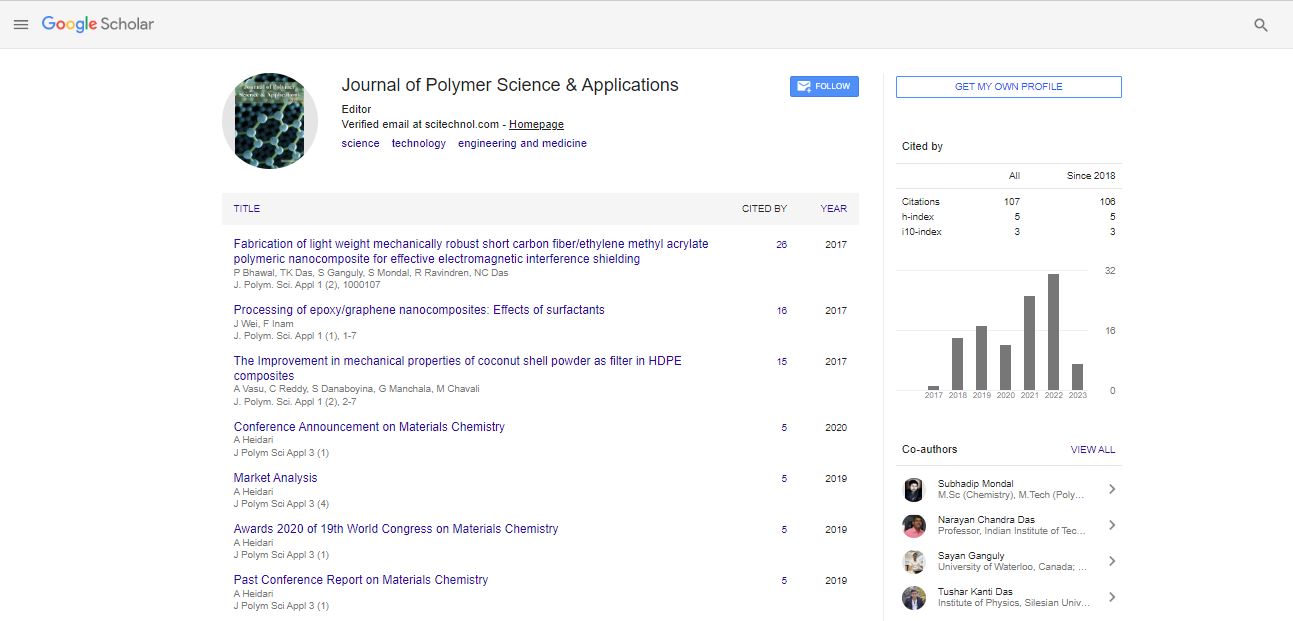Biological and chemical properties of fungi in the world: A systematic review
Olyvia Gwladys Fadeyi, Remy Bertrand Teponno and Nourou Soulemane Yorou
University of Parakou, Benin
University of Dschang, Cameroon
: J Polym Sci Appl
Abstract
Fungi are playing an important role in human health care and industry since immemorial time. The relevance of fungi in human health is not only high, but their benefits are actually staggering and expanding. Due to their megadiversity, fungi are predicted to provide novel bioactive metabolites of remarkable pharmaceutical significance. It is the case of Basidiomycota species the second largest division of the Kingdom Fungi after the Ascomycota and comprises ca. 35.000 species. Many of them, especially the Agaricomycetes class, produce conspicuous fruiting bodies (basidiomes) and have probably been used as a source of food since early human civilization. Since the edible species are often easily confused with morphologically similar and poisonous mushrooms, the consumption of the latter species may lead to fatalities. This prediction is supported by few ethnomycological investigations that reported on various taxa commonly used for therapeutic purposes. Therapeutic exploitation presents a large spectrum, including treatments against convulsions, skin diseases, heart problems, cancer; but also, to boost the immune system. In the present talk, we will give a global overview of the diversity of tropical African mucoromycetes commonly used in traditional medicine along with the application procedure. We will also explore fungi taxa that present a high potential for useful secondary metabolites and discuss about recent findings on their bio-activity.
Biography
Olyvia Gwladys Fadeyi is a PhD student at the age of 31 years from University of Parakou, Benin. She has two publications that have been cited 20 times. She also wrote 5 articles in redaction.
 Spanish
Spanish  Chinese
Chinese  Russian
Russian  German
German  French
French  Japanese
Japanese  Portuguese
Portuguese  Hindi
Hindi 